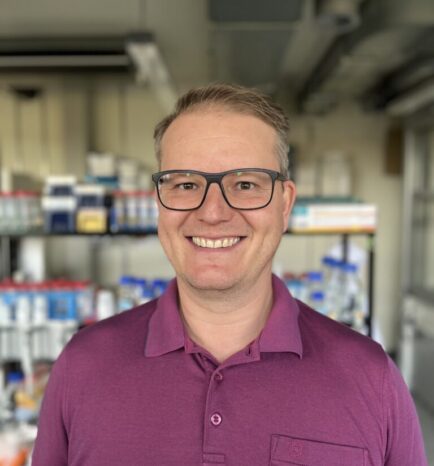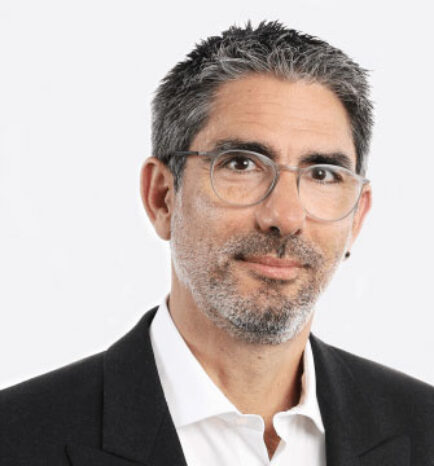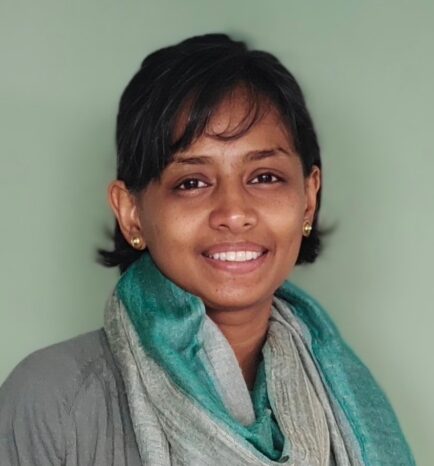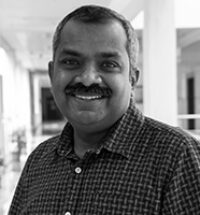
Dr. Lena Robra
The Silent Pandemic of AMR
AMR has dangerous implications for human life, including the possibility of death triggered by bacterial infections. The last time a class of broad-spectrum antibiotics was developed was about five decades ago. Lack of awareness around AMR is prompting people to misuse antibiotics for infections that are not bacterial—particularly viral and fungal. The disease-causing bacteria in our bodies are developing resistance to the antibiotics and very soon we’ll run out of the strongest antibiotics available. At the same time, low- and middle-income countries struggle to get access to new life-saving antibiotics. This has serious consequences—when we genuinely need antibiotics to deal with medical issues like C-section deliveries, basic surgeries, pneumonia and tuberculosis, the antibiotics will be rendered useless and will not work on killing the disease-causing bacteria.
Pharmaceutical companies have largely stayed away from antimicrobial work because the science is hard and the regulatory environment is complex. It also takes years of research and trials to develop new antibiotics, whereas bacteria mutate every 20 minutes. So when a new class of antibiotics is developed and made available to the public, there won’t be an end game because we know how quickly bacteria mutate and it is not possible to create new classes of broad-spectrum antibiotics as quickly. The motivation for pharmaceutical companies to invest resources to develop a new class of antibiotics is low because it would have to be used only as a last-resort drug—when all else fails—and wouldn’t be available as a mass product. Therefore, the financial incentives to develop antibiotics are far less compared to drugs for cancer, diabetes, rheumatoid arthritis and other such illnesses.
AMR is not restricted to bacterial infections, but also extends to viral infections, helminths (parasitic worms) and pathogenic fungi. Addressing AMR beyond bacterial infections is challenging due to limited treatment options, slow drug development and inadequate diagnostics. Resistant viruses, fungi and helminths (parasitic worms) have fewer available drugs, and pharmaceutical investment is low. Lack of rapid, affordable diagnostic tools is delaying effective treatment. Complex resistance mechanisms in fungi and parasites make research and drug design difficult. Global health disparities hinder surveillance and access to treatments, especially in low-income regions. The Indo-Swiss AMR Innovation Dialogue also aims to seed conversations and collaborations tackling AMR beyond bacterial infections.
After the first Indo-Swiss AMR Innovation Dialogue, researchers from both countries started collaborations and visited each other’s research groups for training and capacity building. Companies acted on insights they gained into the work Indian researchers do and Indian students travelled to Switzerland to conduct their Master’s thesis.
Beyond our collaboration with the Universities of Geneva and Zurich, we continue to promote collaborations in AMR under the AMR Innovation Platform of the Indo-Swiss Innovation Platform, through which Swissnex in India, in collaboration with the Embassy of Switzerland in India and the Swiss Business Hub facilitate strategic partnerships between the two countries in areas of health, sustainability and digital transformation. Notable partners in AMR are the India Health Fund, the Drugs for Neglected Diseases Initiative (DNDi) and the Global Antibiotic Research and Development Partnership (GARDP). The idea of the Platform is to consider matters beyond initial conversations in a planned and thorough manner that leads to tangible, measurable outcomes.
The next Indo-Swiss Joint Research Programme, a bilateral multi-year academic funding instrument of the Swiss National Science Foundation and Indian ministries is expected to open with a funding call in One Health—which includes AMR—at the end of the year. We encourage Indian and Swiss researchers to start thinking about potential proposals to submit for this call.
Bio
Prof. Markus Seeger is an Associate Professor at the Institute of Medical Microbiology at the University of Zurich. Research in his lab focuses on the structure and function of membrane transporters found in pathogenic bacteria, which includes multidrug efflux pumps belonging to the large class of ABC transporters, as well as lipid and siderophore transporters in Mycobacterium tuberculosis. Markus Seeger holds a PhD from the ETH Zurich (2007) and pursued postdoctoral studies in Cambridge, UK. He received a SNSF professorship in 2013 and an ERC consolidator grant in 2018. Since 2015, he has led the antibiotics platform of the Swiss association Biotechnet with the aim to foster collaboration between academic and industrial partners involved in the development of novel antibiotics and rapid diagnostics. Markus Seeger was actively involved in drafting the synthesis report for the National Research Programme “Antimicrobial Resistance” (NRP 72), where he was heading the report section ‘Faster diagnostic and new therapeutic approaches. Further, he acts as executive board member of the non-profit The Swiss Swiss Round Table on Antibiotics.
Bio
Dr. Lena Robra is a curious scientist and trained biochemist with a strong interest in sustainability. She has been heading the Academic Engagement team at Swissnex in India since 2021. Prior to this, she led the Bengaluru Sustainability Forum, an entity formed by Bengaluru’s academic institutions aimed at bringing the UN SDGs to the local context. She holds a PhD in Biology from the National Science Institute/Tata Institute of Fundamental Research and a Master’s degree in Biochemistry from Hannover University. She is also a member of the K2A Executive Committee.
Bio
Prof. Patrick Viollier is a bacterial geneticist and cell biologist with a PhD in microbiology from UNIBAS. After completing a postdoc at Stanford University and an assistant professorship at Case Western Reserve University, he became an Associate Professor at the University of Basel in 2009, later named Professor in 2015. He teaches bacteriology to third-year medical students, and since 2022 had run a practical course in bacteriology for both biology students and medical students on AMR and bacterial cell biology. His recent research explores the sensitivity of Caulobacter crescentus mutant cells to the peptidoglycan-targeting antibiotic vancomycin. This work has expanded his interest in applying chemical-genetic approaches with antibiotics, leading to new concepts in drug resistance and protection in Pseudomonas aeruginosa mutants with cell envelope defects.
Bio
Prof. Anjana Badrinarayanan is an Associate Professor of Microbiology at the National Centre for Biological Sciences, Bengaluru. Her research focuses on understanding the mechanisms of bacterial DNA damage response and repair. By using quantitative cell biological approaches, her lab investigates how bacteria regulate these pathways to adapt to stressful environments, such as those encountered within the host. These mechanisms play a crucial role in bacterial survival, allowing them to evolve resistance to antibiotics. Anjana’s work aims to provide insights into the cellular processes that enable bacteria to thrive under adverse conditions, contributing to the development of strategies to combat antimicrobial resistance.
Bio
Prof. Sunish Radhakrishnan completed his PhD at Pondicherry University and pursued postdoctoral studies at the Case School of Medicine, Cleveland, and the Faculty of Medicine, University of Geneva. Before joining IISER Pune in 2019, he was an Assistant Professor at IISER Thiruvananthapuram, India, and an Associate Professor at the University of Warwick, UK. The work in Sunish’s group is focused on understanding the signaling network that regulates bacterial cell cycle and proliferation in response to nutrient availability and metabolism. The lab aims to uncover how this network is reprogrammed when cells encounter external cues, such as antimicrobials. This research is crucial for developing new strategies to combat antimicrobial resistance and enhance the efficacy of existing antibiotics.
Dr. Lena Robra




